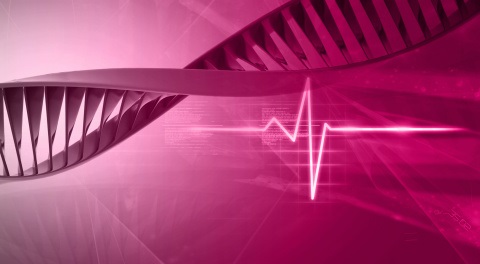Health and Healthcare
Halozyme Gets New Hope for Shareholders, and for Pancreatic Cancer Patients
Published:
Halozyme Therapeutics Inc. (NASDAQ: HALO) saw its stock surge on Thursday on news reports that the U.S. Food and Drug Administration (FDA) has removed its clinical hold on patient enrollment and dosing of PEGPH20 in the ongoing Phase 2 trials evaluating possible treatments for pancreatic cancer. The move clears Halozyme to resume the study under a revised protocol, and enrollment is expected to resume after the review and approval of the amended protocol by review boards.
Halozyme also said that the trial’s independent Data Monitoring Committee recommended that enrollment and dosing in the study resume under a revised protocol back in May. The company said that more than 100 patients were already enrolled, and it plans to enroll a similar number after the hold is released.
The company’s study is a Phase 2 multicenter, randomized clinical trial, and it is evaluating the compound as a first-line therapy for treatment of patients with stage IV metastatic pancreatic cancer. In short, this is a huge deal if the company is successful.
24/7 Wall St. would remind its readers that pancreatic cancer is among the worst of cancers out there. Survival rates are extremely low. Even the great Steve Jobs succumbed to it. The American Cancer Society’s estimates for pancreatic cancer in the United States for 2014 are about 46,420 people will be diagnosed with pancreatic cancer and about 39,590 people will die of pancreatic cancer.
For the study endpoints, Halozyme’s press release said:
The primary outcome of the trial is to measure improvement in progression-free survival in patients receiving PEGPH20 in combination with gemcitabine and nab-paclitaxel compared to gemcitabine and nab-paclitaxel alone. A second primary endpoint has been added to assess the thromboembolic event rate in the PEGPH20 treatment arm following the protocol amendment. Secondary endpoints include objective response rate and overall survival. The protocol amendments to the study include the exclusion of patients who may be at higher risk of thromboembolic events. Additionally, low-molecular weight heparin will be used as a prophylaxis to prevent thromboembolic events.
Again, Halozyme has seen its share of volatility. The stock peaked above $16 in January, and then tanked in early April when it dropped from above $12 to under $8. Halozyme shares were up more than 14% at $9.25 on 4.3 million shares (about twice its normal volume) after the first 90 minutes of trading on Thursday.
One last thing to consider is that Wall Street has not given up entirely on Halozyme, even after the stock tanked. The company’s market cap is almost $1.1 billion, even with revenues only averaging $50 million per year.
ALSO READ: Three Companies That Want to Cure Pancreatic Cancer
Want retirement to come a few years earlier than you’d planned? Or are you ready to retire now, but want an extra set of eyes on your finances?
Now you can speak with up to 3 financial experts in your area for FREE. By simply clicking here you can begin to match with financial professionals who can help you build your plan to retire early. And the best part? The first conversation with them is free.
Click here to match with up to 3 financial pros who would be excited to help you make financial decisions.
Have questions about retirement or personal finance? Email us at [email protected]!
By emailing your questions to 24/7 Wall St., you agree to have them published anonymously on a673b.bigscoots-temp.com.
By submitting your story, you understand and agree that we may use your story, or versions of it, in all media and platforms, including via third parties.
Thank you for reading! Have some feedback for us?
Contact the 24/7 Wall St. editorial team.